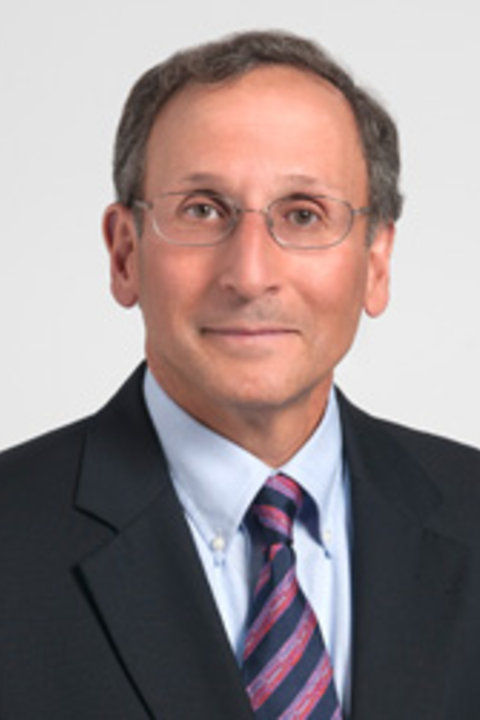VP of research and sponsored programs is seasoned researcher
After 34 years working for the Cleveland Clinic Lerner Research Institute, Paul DiCorleto changed jobs to be the vice president of research and sponsored programs at Kent State this past August.
“I am happy to hear from anyone about the research, what they like to see (and their) participation in research,” DiCorleto said. “We are going to try to significantly increase the opportunities for undergraduates to participate in research on this campus and in many different fields and (are) happy to hear their input in such a process.”
DiCorleto comes to Kent State from the Cleveland Clinic, where he served as Sherwin-Page Chair of the Lerner Research Institute since 2002. This coming after his time as Case Western Reserve University, where he served as chair of the Department of Molecular Medicine in the Case Western Reserve University School of Medicine since 2003.
“It was a fantastic experience to be part of an institution for three decades,” he said. “I wanted to go into research and medical research (provides me with) an opportunity to make discoveries that are impactful and (experience) excitement on a regular basis.”
During his time at the Cleveland Clinic, DiCorleto was involved in representing research in many of the committees. While he directed his own research in the laboratory, he also oversaw research operations with a budget of about $250 million per year.
As part of his job as the vice president for research and sponsored programs at Kent State, DiCorleto helps faculty and staff secure external funding to support their research, instructional and public service projects. It will be made a cabinet-level position, with DiCorleto reporting directly to President Beverly Warren. Previously, the vice president for research and sponsored programs reported to the provost.
After nearly three months in his new title, DiCorleto has expressed enthusiasm for his experience at Kent State so far.
“There is a great passion among the faculty and administration and the students I (have) met regarding growing the research on campus and building its national profile by building strong research programs,” he said.
Being new on the job, DiCorleto has been focusing on understanding the diverse community at Kent State and how everything is fitting together.
“For the past (few) months I’ve been here, I’ve spent a lot of time listening to people… attending various events so I can get an understanding (of) how the university operates and how research can fit well into the operation,” he said.“We would like to improve the number of successful research programs that have good external funding from federal agencies that will allow to build a national profile in those research areas.”
Jeff McLain, vice president for institutional advancement, said the addition of DiCorleto to Kent State’s research team has been nothing short of beneficial.
“He has a relaxed way and good humor about himself,” McLain said. “He’s a strong addition to President Warren’s team and I’m glad he is at Kent State.”
DiCorleto understands how his role — fostering private philanthropy — and his own role – advancing the Kent State research enterprise — can work together, McLain said.
The ability DiCorleto has to bring his extensive history of successful philanthropic engagements to Kent State allows him to make a direct connection between faculty and research, McLain added.
“DiCloreto has a formidable challenge to stimulate increased research funding,” McLain said. “I believe he is the right person to spearhead our overall research initiatives and lead our faculty to grow our research.”
Jeffrey Harris, founder of Harris Search Associates, took part of the Kent State search committee with Provost and President Warren. The search process began last November and ended this past spring, Harris said.
“We did a national search (where) we actively recruited a number of individuals across the country,” Harris said. “There were semifinalists that were narrowed down to the three. We had a very robust pool of outstanding individuals.”
Simon Hannig is the research and graduate studies reporter for The Kent Stater. Contact him as [email protected]



